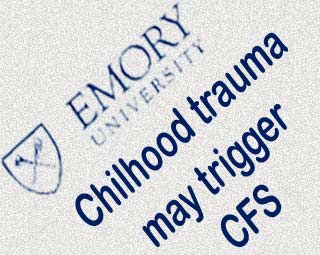
This study was conducted by the researchers at Emory University School of Medicine and the Centers for Disease Control and Prevention (CDC). The researchers state that childhood trauma is also linked with low cortisol levels.
Cortisol levels are believed to be a biological feature of CFS. Cortisol or “stress hormone,†as it is usually called, is apparently crucial in the management of the body’s response to stress. A lack of these stress hormones, may lead to prolonged stress responses, as the name suggests.
Study lead author, Christine M. Heim, PhD, associate professor in the Department of Psychiatry and Behavioral Sciences, Emory University School of Medicine, says that, “The study indicates that low cortisol levels may actually reflect a marker for the risk of developing CFS rather than being a sign of the syndrome itself.â€
Study was conducted on around 113 CFS suffering people, in addition to a control group of around 124 people without CFS. All the participants apparently had to complete a self-reported questionnaire on five types of childhood trauma; namely, physical, emotional and sexual abuse, and physical and emotional neglect.
The researchers state that the development of CDC is more likely to increase by six times in the case of childhood trauma like emotional maltreatment and sexual abuse. CDC risk is said to increase in the occurrence of post-traumatic stress disorder symptoms.
In order to measure their cortisol levels, saliva samples were also collected from these participants. Heim says that in all the CFS patients, the ones with childhood trauma revealed low cortisol levels. He also points out that only the people who have experienced childhood trauma may not fall victims to CFS. CFS may occur also due to various childhood adversities like depression or anxiety disorders.
It is stated that the vulnerable brain of children, on experiencing certain factors may influence the way their body deals with stress in adult life. They may also face long-term health adversities. A more detailed analysis is required in order to evaluate this criterion.
This study is published in the Jan. 5, 2009 Archives of General Psychiatry.
